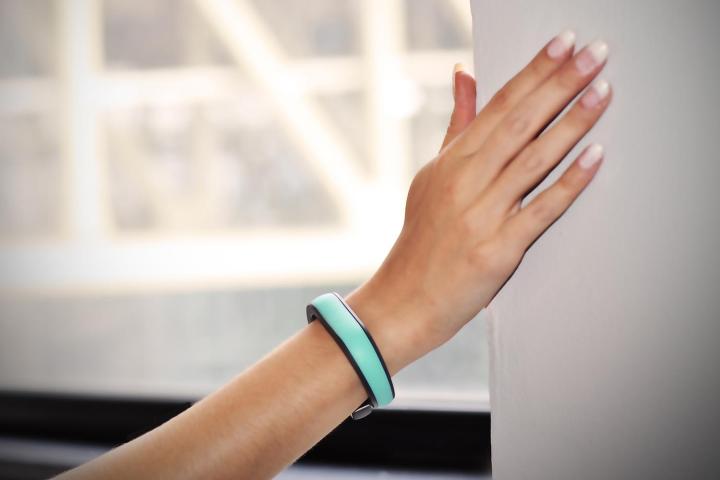
The Everykey, which looks the Jawbone Up’s first cousin, aims to replace physical keys and password managers. The result of an entrepreneurship class project at Case Western Reserve University, the silicon wristband is able to unlock electronic devices if it’s within a specified distance up to 3 meters (9.8 feet). It can also unlock a front door or a car door, in addition to turning on and off lights and other smart devices. Wearers can also use the Everykey to log in to websites via Bluetooth.
The team behind the wristband says unencrypted passwords to a wearer’s devices are never stored on their servers or on the wristband. “The wristband broadcasts encrypted information to identify itself, which only your devices are able to decrypt,” according to the Everykey’s Kickstarter page. “The passwords to your devices are stored on the devices themselves in an encrypted form within a keychain.”
Website login information is encrypted and stored on an Everykey server, which the team says prevents it from being able to decrypt anyone’s passwords.
The Everykey is compatible with Mac OS, Windows, Android and, to a certain extent, iOS (website password management works with iOS 8.0+, but device unlocking won’t work without a jailbroken iOS). The water resistant wristband comes in seven colors and has a battery that can last up to 30 days.
If someone loses their Everykey, they can call a phone number or log in to their Everykey.com account and deactivate their wristband.
The Kickstarter campaign, which began on Oct. 29, has raised about $51,000 of its $100,000 goal from more than 770 backers. The project will close on Nov. 29. Shipments are expected to start on March 15, and the Everykey will have a $100 retail price.
Editors' Recommendations
- If you use this free password manager, your passwords might be at risk
- Big tech firms are teaming up to banish passwords for good
- Yup, Ring’s Always Home Cam flies itself to patrol inside your home
- Don’t be fooled if your smart speaker asks for your password
- Lawsuit alleges Equifax’s stupid password made it super-easy to steal your data


